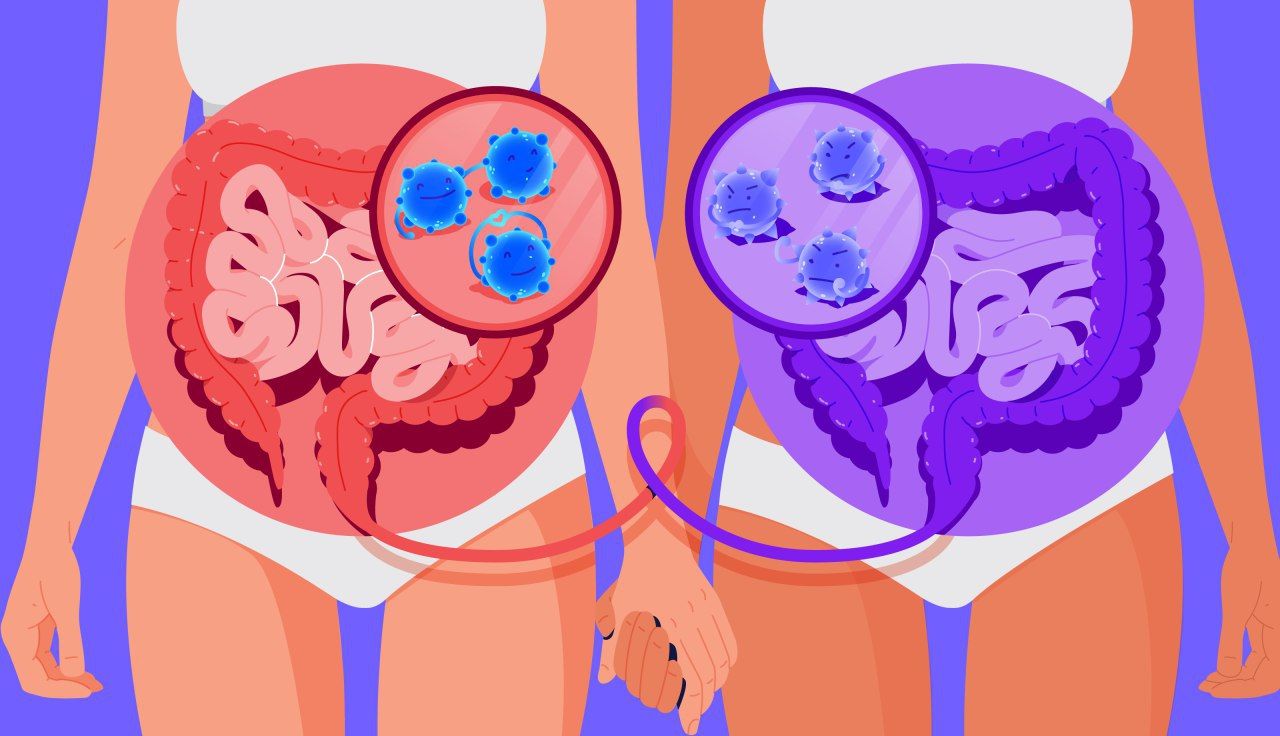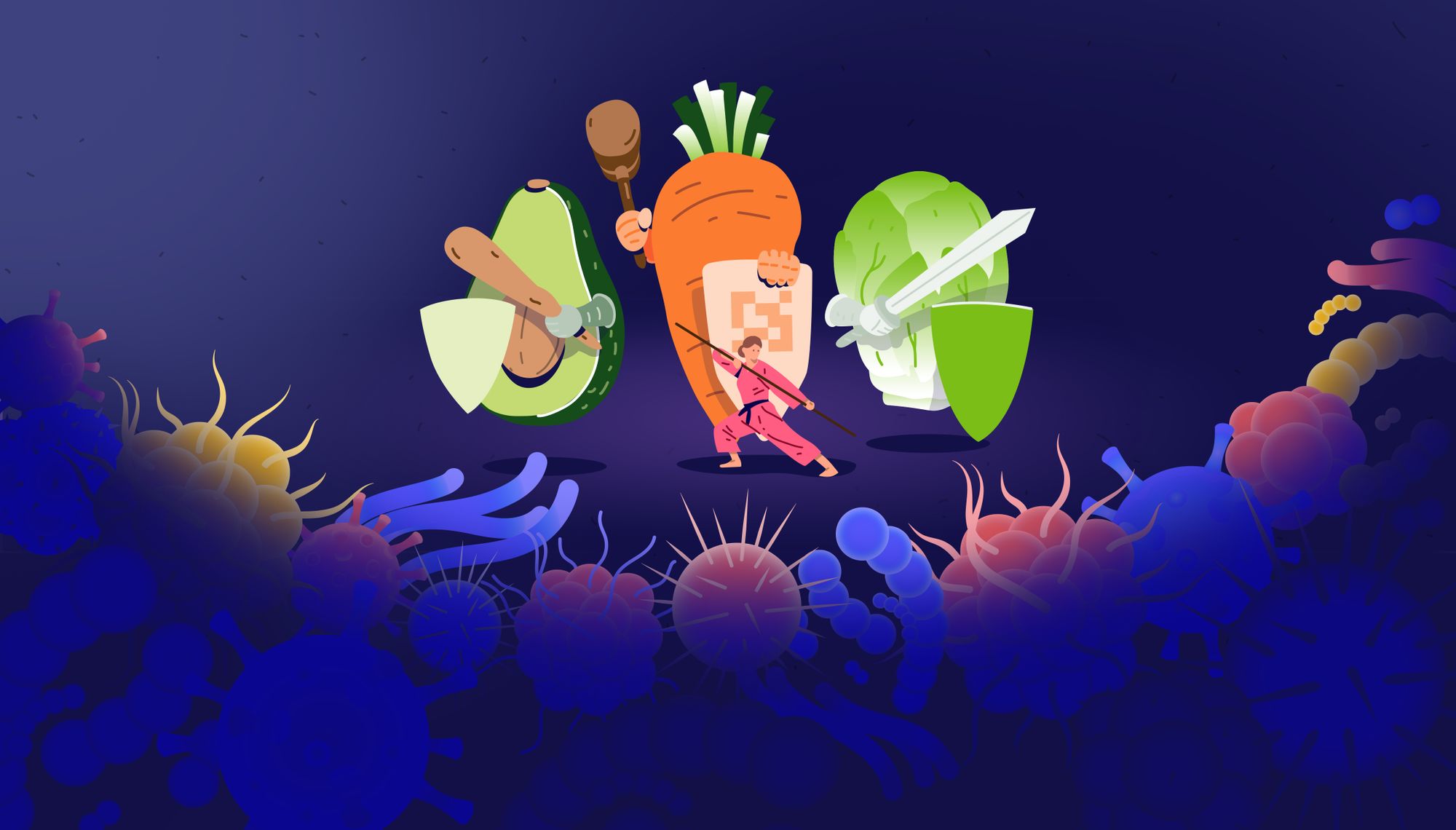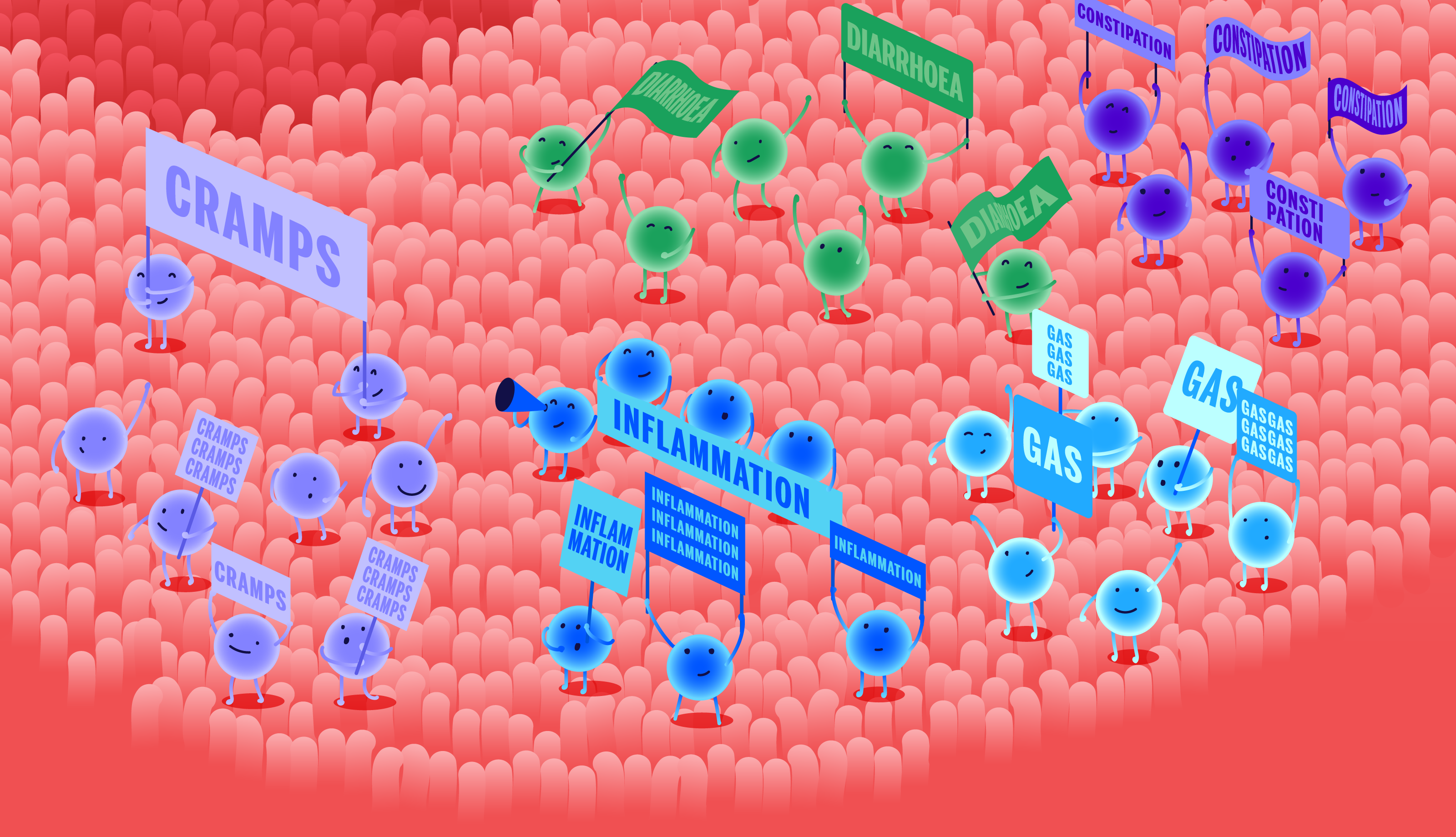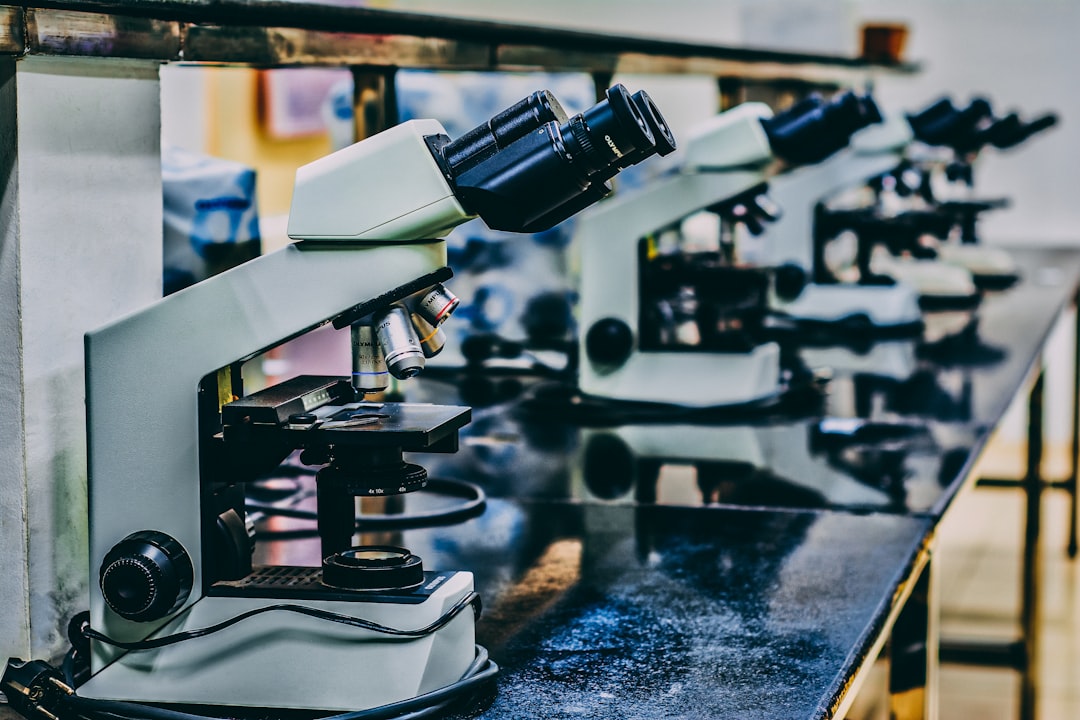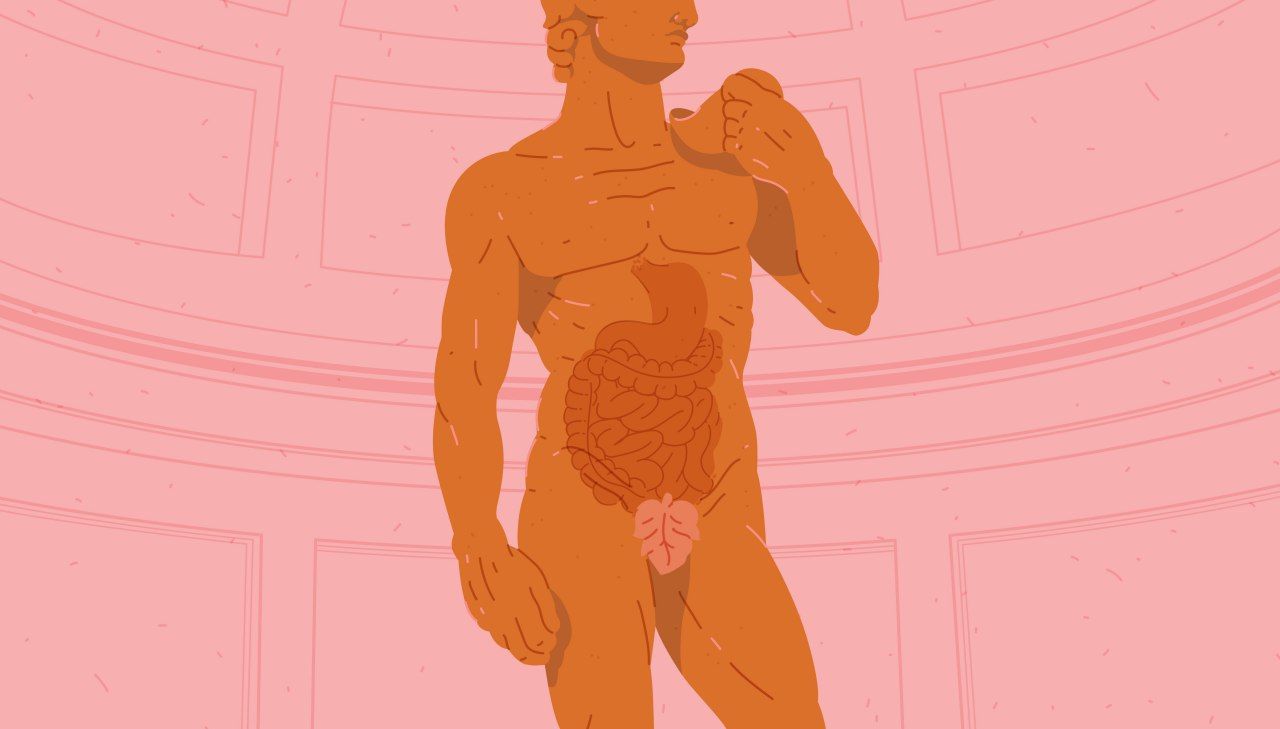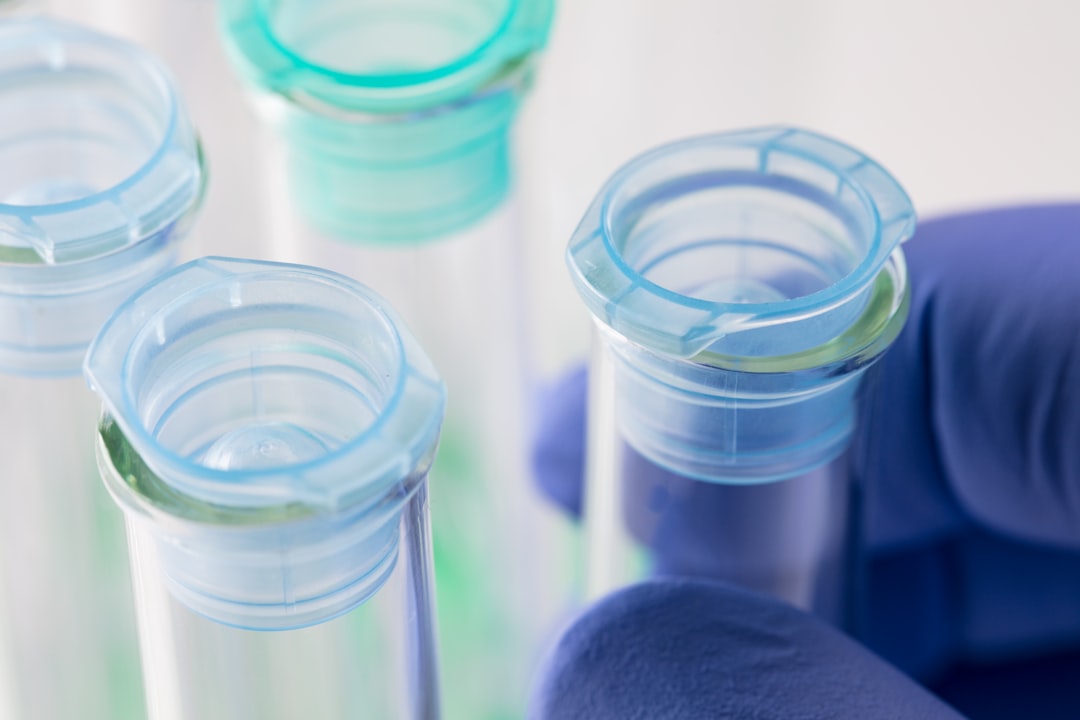Faecal transplants: we explain what they are and what they treat, associated risks, and why you should never ever do this at home.
Faecal Microbiota Transplantation (FMT) is the medical term for a “poop transplant”, an emerging method to repopulate the gut with a healthy ecosystem of bacteria.
However, it’s not as simple as it sounds. Advanced methods extract the living microbiome for transplantation, they don’t just transfer the whole stool sample. We’ll explain this, but first, let’s review some facts on the gut microbiome and health.
Our bodies are not sterile, they are covered in bacteria that perform important functions for our health and help protect us in many ways. The colon (also known as the large intestine) is home to the largest of these symbiotic microbial ecosystems.
Weighing in at 1.5kg on average, the gut microbiome interacts with our body in many different ways. It produces essential vitamins, but also short-chain fatty acids that acidify the environment and maintain the gut lining.
By doing so, this organ is more attractive to beneficial bacteria, less attractive to pathogens, and can play host to a wide diversity of microbes that participate in our overall health.
When there isn’t enough diversity - too much of some bacteria and not enough of others - it’s a sign of dysbiosis. In mild cases, these negative alterations in the composition of the gut microbiome encourage inflammation and digestive symptoms.
Coming up in this article
| What can FMT treat? | Potential applications for health |
| How does it work? | Donor health and sample quality |
| Risks associated with FMT | Limitations of this technique |
| Clinics that offer FMT services | Become a stool donor |
| Diet for a healthy microbiome | Gut microbiome testing |
☝️DISCLAIMER☝️ This article is for informational purposes only. It should not be used to diagnose, treat, prevent, or cure any disease or condition.
FMT targets dysbiosis for treatment
Dysbiosis has been linked to many diseases, not only of the digestive system, like Crohn’s and ulcerative colitis, but also whole body, deadly and chronic illnesses, like coronary heart disease, diabetes type 2, obesity, Parkinson’s, and fatty liver disease (the non-alcoholic type).
The theory guiding renewed interest in faecal transplants is simple: replace the dysbiotic microbiome of sick patients with a healthy microbiome transplant from a donor. The reality is far more complex.
What illnesses can be treated with a faecal transplant?
Faecal (microbiota) transplants are only used to treat a few specific illnesses. Some clinics offer FMT as an option for unresolved digestive issues in patients with dysbiosis.
Currently, much research is going on globally to ascertain whether some specific conditions will respond to a faecal microbiota restoration. Results are not conclusive yet for anything other than Clostridium difficile.
This serious infection, also known as C. diff, is often contracted after antibiotic treatment and during hospital stays. It can have life-threatening consequences for the elderly and people with weakened immune systems.
Antibiotics have been traditionally used to treat C. diff, but the success rates were not very good. Often, patients were administered several rounds of antibiotics, but the infection still resisted treatment. FMT is now an accepted treatment option (supported by several clinical trials) to treat recurrent C. diff.
The success rates treating recurrent C. diff infections are as high as 92% or more, spurring interest in how faecal transplants may be used for other digestive pathologies.
Did you know? We are partnered with the Taymount Clinic, the world’s first specialised FMT clinic. They report 100% success rates treating C diff and offer special programs for people with digestive problems.
Potential applications of FMT
There is a lot of hope and investments riding on faecal transplants as a non-invasive and non-aggressive form of treatment for several serious illnesses.
Inflammatory bowel diseases
They are increasingly common in adults and children in developed countries, but there is still no effective treatment for them. There are several ongoing and planned clinical trials to see if faecal transplants can help patients.
Although faecal transplants are not a cure for IBD, it does seem to alleviate symptoms of these diseases in some patients.
Ulcerative colitis: several randomised clinical trials reported that just over half the patients responded to a faecal transplant from healthy donors. Among the participants that responded, about 25% of them entered remission (with fewer or no symptoms of the disease).
Crohn’s disease: there are some limited positive results for FMT in small cohort studies, but it is still early days. There are several ongoing studies in adults and children to investigate the use of faecal transplants for Crohn’s.
Metabolic syndrome
This cluster of conditions increases a person’s risk of diabetes type 2, heart disease, and stroke. People with metabolic syndrome have high blood pressure, high blood sugar levels, high cholesterol or triglycerides, and excess abdominal fat.
Photo by Ousa Chea / Unsplash
Every sample, donor and recipient needs a full health work-up with labs
Gut bacteria have an impact on many metabolic features of the body, and a large body of evidence shows that a healthy microbiome can protect from coronary heart disease and diabetes.
Randomised control trials with donor samples from lean individuals show that it can improve insulin sensitivity in peripheral tissues after six weeks.
Graft-versus-host-disease
This rare disease affects people who have received donor bone marrow or peripheral blood stem cells. It occurs when these transplants view the patient’s body as foreign and attack it.
Small studies indicate that faecal microbiota transplants have varying results, with some positive outcomes, in treating this disease.
Other diseases
The effects of gut microbial activities are vast, and medical scientists believe that FMT may have the potential to help with a wide range of illnesses.
| Food allergies | Irritable Bowel Syndrome (IBS) |
| Depression | Multiple sclerosis |
| Antibiotic resistance | Severe malnutrition |
| Obesity | Liver disease |
| Autoimmune disorders | Allergic diseases |
| Autism spectrum disorders |
How it works
Faecal transplants can use fresh or frozen stool, and are administered by one of three methods depending on the patient’s condition.
Doctors who use faecal transplants as a therapeutic option follow strict procedures when assessing the best way to prepare and deliver the sample.
Directly into the colon: this method is considered the most effective. The healthy donor sample is emulsified with a saline solution and a long tube is inserted via the rectum into the colon. Once properly placed, the liquid is sprayed onto the lining of the organ.
Studies show that this method works best if the FMT can be applied to the right side of the colon, which is furthest from the rectum. However, in some cases patients may have severe damage to this organ, making this procedure unsuitable.
Through the nose: the liquid solution of stool and saline solution is delivered by a tube inserted into the nose that reaches down into the small intestine, bypassing the acid barrier of the stomach. However, it can trigger vomiting, and particles may be inhaled and cause bacterial pneumonia, which is life-threatening.
Capsules: the faecal solution is inserted in capsules designed to resist stomach acid and break down in the gut, delivering their contents to the patient. However, this method is still not as effective as transplanting directly in the colon.
FMT won’t solve everything
Faecal transplants are not quick fixes for every health problem, gut-related or otherwise, and there are significant risks if they are not performed by a responsible and reliable provider.
This technique has earned a lot of headlines like the obese mice that lost weight after getting a poop transplant from lean mice. A similar effect was also observed in humans.
Doctors reported on a special case in which a woman received a faecal transplant to treat C. diff. The treatment was considered successful until the patient put on a lot of weight very rapidly - prompting questions about the sample.
The doctors discovered that the faecal sample had come from an obese donor, and it had transferred these features to the new host. Not only does this case demonstrate how the gut microbiome can influence body, but it also indicates that you may be able to transfer specific metabolic features to others.
You can find the case study of this patient in our Sources section at the end. This reason alone highlights how critical it is to select a healthy donor when conducting faecal transplants, but it’s not the only one!
Risk of disease and infection transmission
There are other important risks that arise from transplanting bodily fluids from one person to the other. Faecal matter can contain pathogenic and drug-resistant strains of bacteria, diseases, and viruses.
In June 2019, America’s Food and Drug Administration (FDA) issued a warning about this technique after two immuno-compromised patients (with weakened immune systems) were infected with multi-drug resistant organisms (MDROs) from donor samples. One of the patients died.
We asked Enid Taylor, co-founder of the Taymount Clinic, about infection risks with FMT, and she highlighted that even minor infections in healthy people can put people with weak immune systems at risk:
“Even a transient E-Coli infection which can resolve itself within 28 days in a normal healthy person, can seriously threaten the health of the patient who is already immuno-compromised. Such infections can be picked up from badly cooked meats, warmed-up leftovers and take-aways, and even salads left sitting around in the summer heat at BBQs, etc.”
These are important reminders that faecal microbiota transplants must be conducted with the utmost care, exceptional quality control, and stringent protocols for the selection of stool donors and samples before use.
Because this is a new technique, not everyone agrees on the procedures, but there are a few vital tests that should be conducted to minimise the risk of infection and disease transmission before a donor sample is approved for use:
| Diagnostics | Reason |
| Medical history | Identify whether the donor has a history of disease, which might affect the recipient. |
| Serological tests | Identify presence of antibodies in blood serum associated with specific diseases. |
| Faecal tests | Assess whether parasites, viruses, or bacterial pathogens are present in the donor sample. |
Adverse reactions and lack of response
The complexities of the human microbiota are vast, and there is still a lot for the scientific community to learn about this ecosystem.
The gut microbiome is like a fingerprint, every person has a different one, and it’s influenced by many factors. Bacteria start to colonise our body from birth, and these early life experiences like C-section or vaginal birth, breastfeeding or not, antibiotics, as well as the mother’s health and lifestyle, all count.
So, while on average, there may be a high success rate, it’s hard to predict if the transplant will take. In some cases, there may even be adverse reactions, even when the results are positive for most people.
For example, several studies analysed the effect of FMT for patients with C. diff who also had inflammatory bowel disease. Approximately 25% of patients with IBD who received a faecal transplant had a flare (acute exacerbation of their IBD symptoms) afterwards.
Enid Taylor of the Taymount explains more: “FMT bacteria are pro-inflammatory, being invasive by their very nature and it is strongly contra-indicated to undertake FMT when an inflammatory flare is suspected or is threatening to occur.”
Potential risks of colonoscopy
Administering a transplant via the colon also comes with some risks, as it does for any medical application of the colonoscopy procedure. Risks include bleeding, adverse reaction to sedative drugs, cardiovascular events, transient fevers, or infections.
But usually, colonoscopic procedures are not particularly risky: “Some clinics are using a simple paediatric rectal catheter which is easily administered, well tolerated, and the entire procedure is over in a couple of minutes,” Enid explains.
Weakened immune system
Several diseases and treatments can weaken the immune barrier that protects us from disease.
Some drugs, like chemotherapy and those for autoimmune problems, like arthritis and lupus, suppress the immune system. Other people may have immunodeficiency disorders that prevent the body’s immune system from doing its job and fighting off illnesses.
Photo by Bill Oxford / Unsplash
FMT may become more common as research progresses on the microbiome
Human immunodeficiency virus (HIV) is one of the most well-known causes of a compromised immune system, but there are other ones too. These factors significantly increase a person’s risk of becoming very sick from infections and viruses.
This is why it’s essential that full medical histories, labs, and diagnostic testing be performed on the stool donor and the recipient before a transplant is conducted. Because FMT is a relatively new concept, only recognised and reputable clinics should perform such procedures.
FMT clinics for digestive issues
In addition to treating C. diff, there are some reputable clinics that offer FMT for people with chronic, undiagnosed digestive problems.
As we’ve established, scientists and doctors are still working on specific medical applications for faecal transplants in the treatment of infections and diseases. However, there are clinics that offer FMT for other issues.
Their focus? Patients with chronic, unresolved digestive problems who have not found solutions with standard medical diagnostics and treatment. Our partner, the Taymount Clinic, is one of such clinics.
The Taymount Clinic opened its doors in 2003 and has been offering FMT since 2012. With clinics performing faecal transplants in the UK, Canada, Slovakia, and the Bahamas, their methods are based on the principles of Functional Medicine.
Using an integrated approach to patient health, they focus on the wide variety of factors that can play a role in unresolved digestive issues, including gut microbiome testing by Atlas Biomed.
Here’s what they say about FMT: “Whilst no claims may be made for resolving any specific conditions, the body often starts to heal itself when given the right support from within the gut microbiome. The Functional Medicine approach is to support the body and activate the natural healing mechanisms.”
Photo by Michael Schiffer / Unsplash
Every donor and sample should undergo extensive screening
Gut bacteria die quickly when they exit the body, that’s why this clinic uses an innovative and protective laboratory process to extract the living microbiome from the stool sample and transplant it, not the unwanted biliary waste products, dead epithelial cells, and undigested foods that are also normally in human stool.
They also operate a 3-6 month quarantine process on their material to eliminate any risks of transferring long-latency conditions like HIV, or Hep A, B, and C. FMT is never offered using fresh material because of this reason; blood tests do not reveal a disease in its early incubation stage.
When their tests reveal dysbiosis, negative alterations in the composition of the gut microbiome, they use FMT as part of the treatment plan. We’ve chosen to partner with the Taymount Clinic because they apply rigorous protocols for testing every single stool donation, and strict patient monitoring and follow-up for FMT treatments.
Become a stool donor
Donating stool is gaining traction and there are several places that accept donors who meet specific criteria.
Donating stool will likely become a recognised practice in years to come, maybe not to the same extent, but in a similar manner to donating blood. In order to perform faecal transplants, healthy people must be found that are willing to share their microbiota.
In the UK, the Taymount Clinic accepts donors, and in the US, a non-profit stool bank called Open Biome recruits stool donors and turns them into C. diff treatment for clinics on the North American continent.
Who can be a donor
In order to become a stool donor, you must undergo strict testing to ensure your sample meets the requirements and won’t make people sick. Detailed questionnaires about health history, motive, and lifestyle are just the starting point.
Co-founder of the Taymount Clinic, Enid, explains: “The benefits of donation are not only the knowledge that people are being helped using gut flora restoration, but also regular full blood screening gives a good feedback of health. Donors are also given Functional Medicine coaching and advice on lifestyle and diet to maximise the health of their microbiome.”
There are specific features they seek to avoid however: “C-Section babies take much longer to assemble a mature and diverse gut microbiome and sometimes never reach the rich diversity that they need.”
“Our screening also checks for a history of weight issues, not just the current weight. Even travel to tropical countries can be a risk: it could have left a highly undesirable resident pathogen resting quietly in dormant phase in the donor.”
Donors must be healthy and should not have any of the following health issues:
| Exclusion criteria | Reason |
| Age <18 yr or >65 yr | The gut microbiome undergoes changes during youth and in old age. |
| Overweight or underweight | Gut microbiome features associated with excess or insufficient body weight may be transferred to the recipient. |
| Medical history | C. diff infections, IBS, IBD, metabolic syndrome, diarrhoea, autoimmune illnesses, and digestive complaints all have links to dysbiosis. |
| Recent antibiotics | Antibiotics are one of the strongest negative factors that influence gut microbiome composition. |
| Drug use, HIV risk | Behaviours that put the donor at risk of HIV put the recipient at risk of contracting this disease. |
| Neurologic or neurodevelopmental disorders | Conditions that affect the brain may be linked to the gut microbiome too, studies are underway. |
| Travel to tropical places | Tropical locations mean the donor may contract bacteria that could make the recipient sick. |
Have you tried changing your diet?
Faecal transplants may be a popular topic in the media, but this treatment should only be performed by a reputable clinic with stringent protocols.
For people with signs and symptoms of dysbiosis, like gas, bloating, diarrhoea, constipation, and abdominal discomfort, FMT should not be the automatic solution. Often, they can be resolved by small changes to your eating habits.
A rich diversity of food choices is the first place to start. Most of us eat the same few foods, by habit, every week. This can make the gut microbiome quite lacking in diversity.
That’s right, what you eat has a major impact on your gut microbiome. Whole, plant foods contain special dietary fibers called prebiotics that nourish beneficial bacteria. Their effects are wide-ranging.
In order to transform your microbiome for better health, your diet should contain at least 30g of fiber per day from a variety of whole, plant foods in your diet. These include vegetables, fruit, grains, beans and other legumes, as well as seeds and nuts.
At Atlas Biomed, we specialise in gut microbiome tests delivered to your doorstep with an in-depth report on the functions of your microbiome, and how to improve it with personalised food and probiotic recommendations based on your results.
☝️REMEMBER☝️FMT has great potential for the future of medicine, but change starts at home. Even if you do receive a faecal transplant, you need to maintain a healthy lifestyle to make sure the benefits stick.
- KO Kim & M Gluck, Fecal Microbiota Transplantation: An Update on Clinical Practice, 2019
- B Eiseman et al., Fecal enema as an adjunct in the treatment of pseudomembranous enterocolitis, 1958
- FDA In Brief: FDA warns about potential risk of serious infections caused by multi-drug resistant organisms related to the investigational use of Fecal Microbiota for Transplantation, 2019
- BJ Kelly & P Tebas, Clinical Practice and Infrastructure Review of Fecal Microbiota Transplantation for Clostridium difficile Infection, 2017
- SM Chin et al., Fecal Microbiota Transplantation for Recurrent Clostridium difficileInfection in Patients with Inflammatory Bowel Disease: A Single Center Experience, 2017
- A Khoruts et al., Inflammatory Bowel Disease Affects the Outcome of Fecal Microbiota Transplantation for Recurrent Clostridium difficile Infection, 2016
- K Newman et al., Treatment of recurrent Clostridium difficile infection using fecal microbiota transplantation in patients with inflammatory bowel disease, 2017
- N Alang & CR Kelly, Weight Gain After Fecal Microbiota Transplantation, 2015
*DW Kang et al., Long-term benefit of Microbiota Transfer Therapy on autism symptoms and gut microbiota, 2019 - Openbiome, FMT clinical evidence
- Openbiome, FMT current studies

